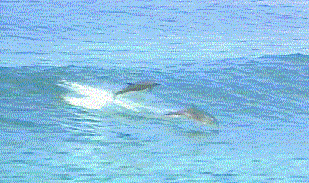 |
|||||||||
|---|---|---|---|---|---|---|---|---|---|
 |
The | ||||||||
Chapter 8 of The Turning Point - Fritjof Capra (1982) |
Introduction & Foreward - Source Material | Web Publication by
Mountain Man Graphics, Australia - the Southern Winter of 1996
 | |||||||
 |
|||||||||
|---|---|---|---|---|---|---|---|---|---|
 |
The | ||||||||
Chapter 8 of The Turning Point - Fritjof Capra (1982) |
Introduction & Foreward - Source Material | Web Publication by
Mountain Man Graphics, Australia - the Southern Winter of 1996
 | |||||||
Forward to this Presentation |
|---|
This web publication consists of the 8th Chapter of Fritjof Capra's "The Turning Point" - Science, Society and the Rising Culture - which was published in 1982. The chapter is entitled "The Systems View of Life" and discusses the emergent specifications of life in terms of recent advances in inter-disciplinary scientific thought. Due to its length, it has been split - in this web publication - into four sequentially parts as follows:
 Part 1 - Machines, Organisms and the Self-Organisation of Systems
Part 1 - Machines, Organisms and the Self-Organisation of Systems
 Part 2 - Independent Physical Entities in Physics and Microbiology and Simbiosis
Part 2 - Independent Physical Entities in Physics and Microbiology and Simbiosis
 Part 3 - Evolution, Nature and the Emergence of Ecological & Evironmental Knowledge
Part 3 - Evolution, Nature and the Emergence of Ecological & Evironmental Knowledge
 Part 4 - Human Nature, Consciousness - Physicists and Mystics
Part 4 - Human Nature, Consciousness - Physicists and Mystics
The reading of this text is recommended for researchers in the broadest of fields, for it clearly outlines what Capra observes as the New Vision of Reality. The formulation of a systems approach of nature - both Inner and Outer - is by necessity a research and development project which is inter-disciplinary. The interconnectivity of each and every part of the cosmos to the cosomos, and vice verse, is the natural observation of the ecologist and environmentalist, the physical scientist and the mystic. And in the long run, all the disciplines of mankind - along with the race of man and all other living beings within the terrestrial and cosmic environments - will share support to the specifications of the nature of nature.
In the following sections there is outlined some background information concerning the author - Fritjof Capra - inclusive of other publications, books and articles which he has contributed to this emergent potential for interdisciplinary advancement of the human culture and sciences, and also that of the individuals who contibute thereto.
As are all other publications at this website, this publication is dedicated to the global internet community at large - and with special reference to those who perceive themselves to be students of Life.
Peace.
About the Author |
|---|
|
|---|
Indra - Who or What is Indra?
A good explanation of the Hindu/Buddhist myth of Indra's net is found in, of all places, The Tao of Physics, by Fritjof Capra:
The similarity of this image with the hadron bootstrap is indeed striking. The metaphor of Indra's net may justly be called the first bootstrap model, created by the Eastern sages some 2,500 years before the beginning of particle physics."
Systemic Wisdom |
|---|
Systemic wisdom is based on a profound respect for the wisdom of nature, which is totally consistent with the insights of modern ecology.
One natural environment consists of ecosystems inhabited by countless organisms which have co-evolved over billions of years, continuously using and recycling the same molecules of soil, water and air. The organising principles of these principles must be considered superior to those of human technologies bases on recent inventions, and, very often, on short term linear projections.
The respect for nature's wisdom is further supported by the insight that the dynamics of self organisation in ecosystems is basically the same as in human organisms, which forces us to realise that our natural environment is not only alive but also mindful. The mindfulness of ecosystems, as opposed to many human institutions, manifests itself in the pervasive tendency to establish cooperative relationships that facilitate the harmonius integration of systems components at all levels of organization.
| Intro | Part1 | Part2 | Part3 | Part4 | Index | ||||||
|---|---|---|---|---|---|---|---|---|---|---|---|
 |
|||||||||||
The Systems View of LifeChapter 8 of The Turning Point
by Fritjof Capra (1982) | |||||||||||
Web Publication by
Mountain Man Graphics, Australia - the Southern Winter of 1996
 | |||||||||||